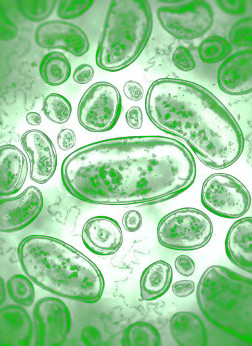Sea swept for microbe data
 An international research team has created an extensive new catalogue of marine microbes.
An international research team has created an extensive new catalogue of marine microbes.
The collaborative effort led by scientists from the King Abdullah University of Science and Technology (KAUST) used cutting-edge DNA sequencing and computing technologies to analyse and categorise 317.5 million groups of genes found in ocean samples across the globe.
The KMAP Global Ocean Gene Catalog 1.0 open-source database is a treasure trove of genetic sequences that could revolutionise our understanding of marine life and its vast potential for applications in medicine, energy, and agriculture.
The catalogue not only documents the genetic diversity of marine microbes but also maps their biological functions, locations, and habitats, offering insights into the complex ecosystems of the world's oceans.
The creation of the catalogue was made possible by advances in DNA sequencing technology, which have dramatically increased the speed and reduced the cost of genetic analysis, and the development of powerful computational and artificial intelligence technologies.
These advancements have enabled the detailed examination of genetic material from 2,102 ocean samples, leading to the identification and classification of an unprecedented number of gene groups.
“Building the catalogue was only possible thanks to ambitious global sailing expeditions where the samples were collected and the sharing of the samples’ DNA in the open-access European Nucleotide Archive,” says Prof Carlos Duarte, the study's senior author.
The catalogue is freely available through the KAUST Metagenomic Analysis Platform (KMAP).
The findings from the KMAP Global Ocean Gene Catalog 1.0 reveal not only the diversity of microbial life across different oceanic habitats but also offer a baseline for monitoring the impacts of human activities such as pollution and global warming on marine ecosystems.
The catalogue also opens the door to discovering new genes for drug development and other biotechnological applications.
Looking forward, the team envisions the creation of a comprehensive atlas of the global ocean genome, which would document every gene from all marine species.
But the future of such endeavours faces challenges, particularly regarding international legislation on benefit-sharing from discoveries in international waters.
Despite these hurdles, the KMAP Ocean Gene Catalog 1.0 stands as a testament to the potential of genetic and AI technologies to foster innovation and progress in understanding and protecting our oceans.








 Print
Print